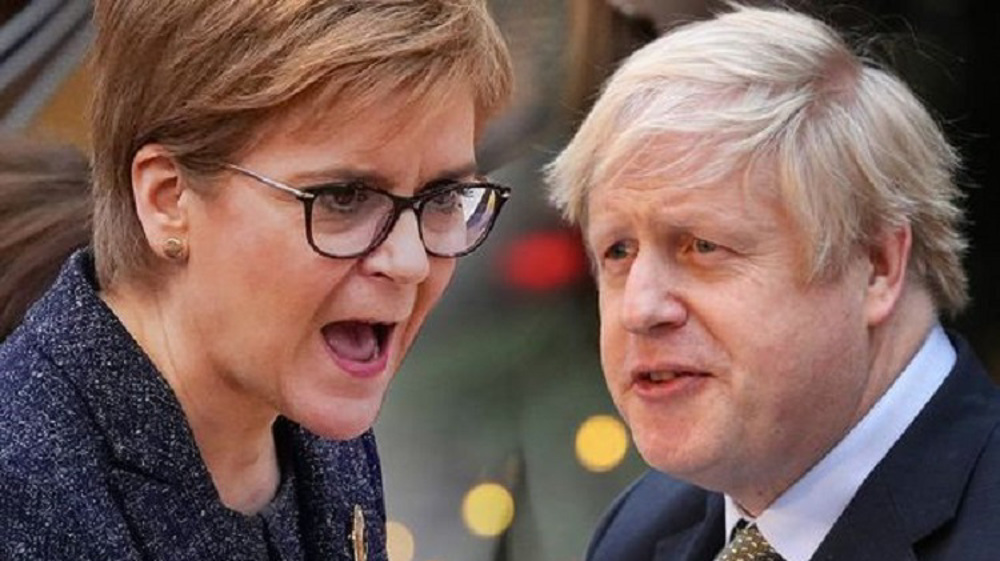SNP in bid to break Indyref deadlock by preparing grounds for confrontation with London
The Scottish National Party (SNP) has tried to break a year-long deadlock over a new Scottish independence referendum by proposing an action plan just ahead of parliamentary elections scheduled for May.
To make the maximum impact ahead of May’s election for the Scottish Parliament (Holyrood), the SNP has set out an 11-point plan which it has styled as a “roadmap to a referendum”.
The upshot of the plan is the SNP’s insistence it will hold a “legal referendum” once the Covid-19 pandemic has subsided, but only if May’s election delivers a pro-independence majority at Holyrood.
The plan also envisages vigorous opposition to an expected legal challenge from the British government.
A clear-eyed plan
The “roadmap to a referendum” document is expected to be presented to the SNP’s national assembly (roughly comprised of 1,000 members) on Sunday (January 24), by the Scottish government’s constitution secretary, Mike Russell.
The document states that if the SNP secure a majority in May’s parliamentary election, the Scottish government will request from the UK government a section 30 order, which is part of the Scotland Act 1998 allowing the Scottish Parliament to ratify laws, a function normally reserved to Westminster.
Crucially, the document states: “there could be no moral or democratic justification for denying that request”, before adding that any opposition by the UK government would be “unsustainable both at home and abroad”.
This position was reinforced by the constitution secretary Russell who made the following statement just ahead of the roadmap’s presentation to the SNP national assembly: “But what is absolutely not for discussion is the fact that if Scotland votes for a legal referendum on 6 May this year, that is what it will get".
British opposition
Predictably, the UK government has adopted a dismissive attitude to the SNP’s latest initiative.
A Downing Street spokesperson said: “The question of Scottish independence was settled decisively in [the Scottish independence referendum] in 2014, when Scotland voted to remain part of the UK”.
The British government, in tandem with the broader political establishment, has even accused the SNP of prioritizing the quest for independence at the expense of fighting the coronavirus pandemic.
But this smear campaign conveniently ignores the fact that Scotland’s First Minister (and SNP leader), Nicola Sturgeon, has been at the forefront of leading the fight against the pandemic on the British Isles.
While the SNP’s latest initiative to break the deadlock over the vexed issue of Scottish independence will likely fail to satisfy the SNP grassroots, in addition to the broader Scottish independence movement, it does at least prepare the grounds for a limited confrontation with London later this year.
Iran reports further drop in annual inflation rate in December
Israel indicts two settlers over suspected spying for Hezbollah
Iran: US airstrikes on Yemen war crimes, violation of international law
Yemeni armed forces down F-18 fighter jet, repel US-UK attack: Spokesman
Iran warns against US-Israeli plot to weaken Muslims, dominate region
VIDEO | Public uproar in US against Israeli regime
‘Ghost town’: 70% of Jabalia buildings destroyed by Israel
Mother’s Day: Sareh Javanmardi’s inspiring journey as Paralympic champion and mother













 This makes it easy to access the Press TV website
This makes it easy to access the Press TV website